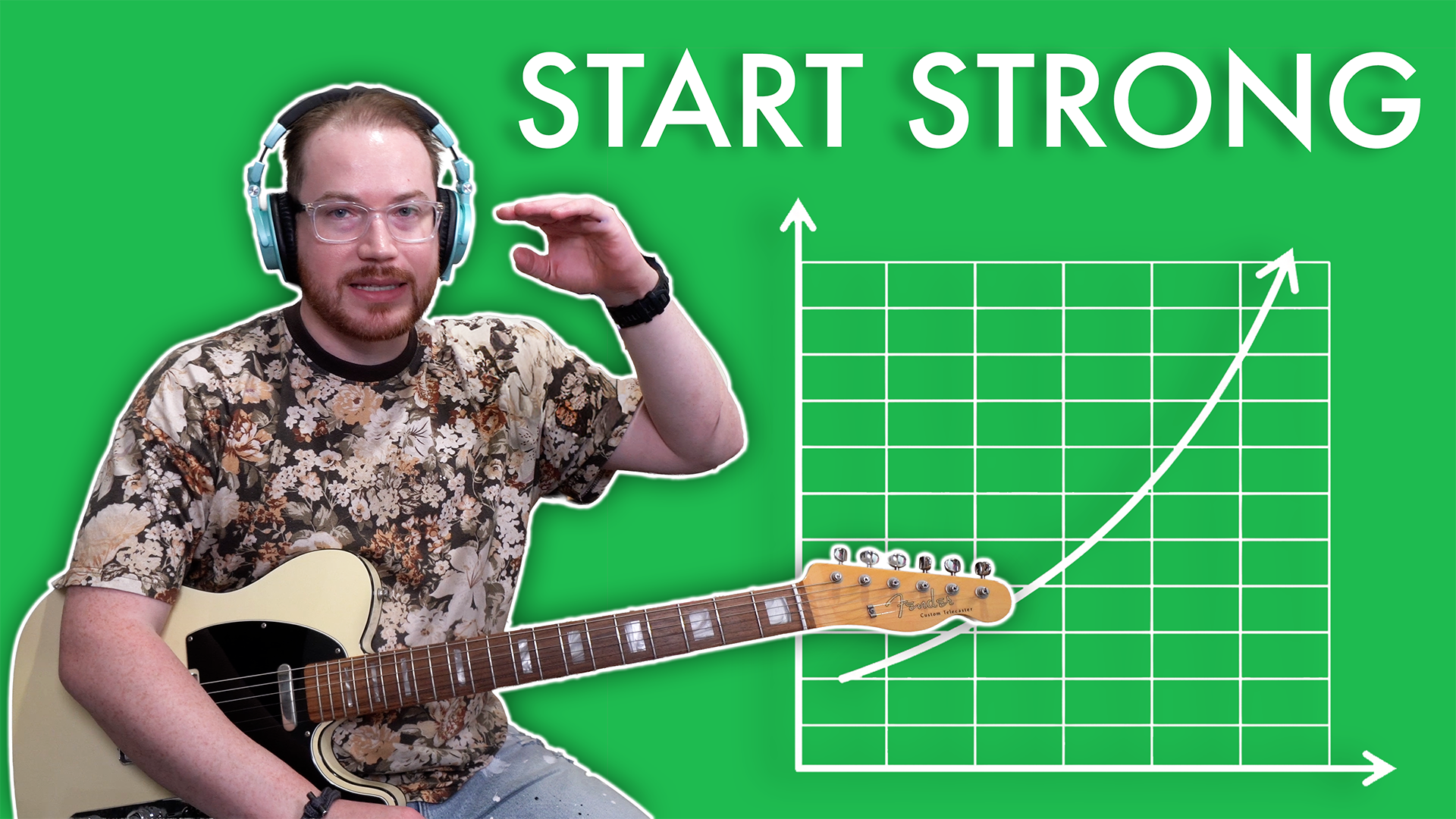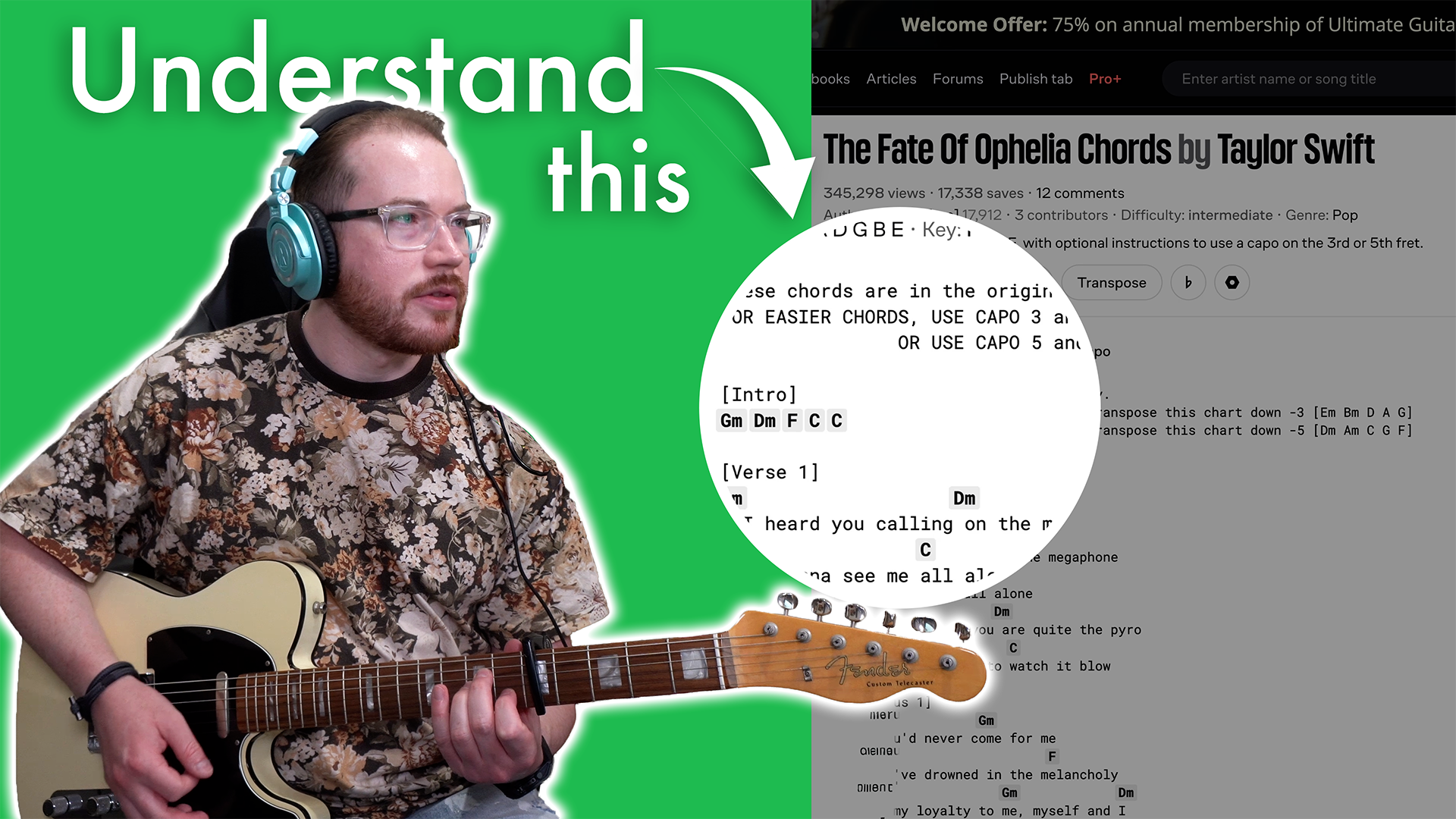How to avoid discouragement while learning the guitar
Practice is hard
“Why is it so hard to practice? I feel like so many people are afflicted by this and it's really just because learning is daunting, right?”
I was asked this question by a student the other day who was struggling with motivation and was having trouble finding time in his day to actually pick up his guitar and practice.
The truth is, I have the same problem. I think every guitarist who’s honest with themselves will admit that they don’t always enjoy practising the guitar. Even though I love playing the instrument, guitar practice can sometimes be a little tedious.
If you’re having trouble finding the motivation to practice, that’s okay. It’s not an uncommon experience. And, it’s definitely not a sign that you’re not cut out to be a guitar player! In this lesson, we’ll discuss how we can change our mindset to make our guitar practice as fun and effective as possible.
Practice is NOT hard
It might seem like a strange thing to suggest that ‘practice is not hard’ after immediately suggesting that it’s hard to practice. But the way we say things affects how we think about them and in turn, the attitude we develop towards them.
Our mental approach to practice is important.
I’m of the opinion that there are very few things on the guitar that are objectively hard. There are some things for sure (like the open F chord). But what I’ve observed in my own experience and as a result of helping hundreds of private students hit their goals on the guitar is that what we often think of as ‘hard’ is actually just ‘unfamiliar’.
I think this is an important distinction to make because if something is ‘hard’ we automatically approach it with the mindset that it’s going to be difficult and require a lot of effort to overcome. Whereas if something is ‘unfamiliar’ - well, we just have to develop familiarity with it. That’s a much less intimidating way to think about our practice.
Now, just because I don’t think there are very many things on the guitar that are objectively hard doesn’t mean I think effective practising isn’t going to feel challenging.
We always want to stretch our limits in order to increase our ability on the guitar.
It’s how we approach the challenge that will determine how successful we are. If we just label something as ‘hard’ - well, that doesn’t really tell us anything about what we can do to overcome the task. But, if we understand that something is just unfamiliar, then all we need to do is build familiarity with the thing. The question then becomes, how do we build familiarity with the thing we are practising? It’s not quite as simple as just doing it over and over again.
Let’s say you’re just starting out and are trying to get your open chords down. Not only do you have to remember the shape of the chord; but you also need to develop the strength and dexterity required to play the chord. You need to be able to execute the movements to the chord and between other chords fast and effectively and you need to understand how the shortcomings of your strumming-hand technique might affect your perception of your progress in regards to your left hand. All of these things can be broken down into granular detail - simple objectives that allow you to develop familiarity with all aspects of how to play the chord and build your technique from the ground up.
If you find you’re having trouble with something on the guitar, usually you need to address a technical aspect of your playing that’s a few layers deeper than you might think.
Practicing the guitar vs. playing the guitar
I always like to make the distinction with my students between practice and playing.
Practice
This is the work we do on the guitar to actively increase our ability on the instrument. Practice isn’t always fun. It can be challenging. It’s not necessarily the most musical activity. But, it has a direct impact on what we can do when we’re playing.
Playing
This is where we stop thinking and freely apply the skills we’ve developed on the instrument as a result of our careful practice. Playing should always be fun!
Every student has a different optimal ratio of practice to playing that will keep them feeling like they are making progress and having fun at the same time. But remember, it’s important to do both.
When we’re learning the guitar, there’s a lot of mechanical work we just have to do to develop our technique. But, once you’ve got something under your fingers, spend some time playing around with it. Explore the idea. It’s always fun and exciting to discover something new on the instrument. Developing muscle memory and integrating your three types of understanding (intellectual, physical, and aural) is often boring, but it’s the work that allows us to keep exploring exciting new things on the guitar when we’re playing.
If you’re finding you’re bored out of your mind with your practice, try spending some time just playing. Stumble across a new way to use the skills you’ve already developed.
It’s about balance. Stay curious.
Micro vs. macro practice
I think this is a really important concept for beginner guitarists to keep in mind. Especially if you feel like you’re not making progress with your practice. It’s really easy to get caught up on the progress we feel like we’re making (or not making) day to day. But this isn’t necessarily a good representation of the progress we’re actually making. If we zoom out and look at our progress on a macro level we can gain a much better idea of how far we’ve come.
Learning how to practice effectively is a skill in and of itself.
I’m not just talking about understanding how to structure a single practice session - that’s practice on a micro level. Rather, how you structure your practice week to week, month to month, year to year. That’s practice on a macro level. Over a longer time period, you have to deal with things like getting stuck in a rut. You have to keep things fresh while also putting in the reps you need to build your overall skills. You have to know how to judge when you’re ready to move on from a concept once you’ve got the optimal benefit from practising that particular thing.
I think it’s also important to keep in mind that your enjoyment of playing the guitar is based on your experience with the instrument on a macro level. It’s super easy to get caught up in the micro details because the micro details are what we experience day to day. But a frustrating practice session (or week of practice sessions) is not reflective of your overall passion for the instrument.
In a similar vein, missing a practice session (or a week of practice sessions) will mean very little in the grand scheme of your life as a guitar player. In five years’ time, you aren’t going to care that you missed a week (or a month) of practice back in 2023. You will remember that awesome trip you took with your family, though. Or, the first few weeks spent with your newborn child.
Life is busy and there are things that are more important than your guitar practice.
Don’t put unnecessary pressure on yourself to get it done just because you think you should. There are more important things in life than practising the guitar and the time you take off isn’t going to matter on a macro level.
When I have students who have these kinds of life circumstances going on I often tell them that I don’t expect them to do any practice during the week. As long as they keep showing up for their lesson they are still going to make progress. Why? Because I am going to make sure that the time we spend together once a week is the most ruthlessly effective practice session they have ever done. Are they going to progress as quickly as if they were practising every day? Of course not. But they have more important things to be focused on. Are they still going to progress towards their ultimate goal of being a competent guitar player? Absolutely!
What metric do you use to assess your practice?
Whether or not you’ve practised the guitar consistently really depends on the period of time you’re talking about.
If the scale is every hour, then I have not practised playing the guitar consistently today.
What if your scale is days? Have you gone no more than two days without practising (that’s three to four times a week)? That’s pretty consistent.
What if you don’t do any practice for a whole week? Well, what do the weeks before that look like? If you’ve practised more weeks than you’ve taken off, that’s still pretty consistent. You can take 20 weeks off during the year and still have practised for 60% of the year. That’s great!
What if you look at it monthly? Maybe you go overseas for a month? Maybe work is hectic at the end of the year? Maybe you just need a mental health break? If you took three months off you’ve still practised for nine months. That’s 75% of the year!
Taking time off isn’t a problem, it’s often necessary. But if we beat ourselves up cause we think we should be practising every day and we’ve missed a month then we can start to get discouraged for no good reason.
Embrace what you’ve got going on in life and fit your guitar practice around that.
Day-to-day, week-to-week, month-to-month.
You’re probably doing better than you think!



